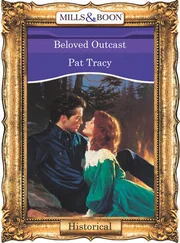"Beloved." He said it, but she did not go. She moved closer with a footfall he didn't hear and he didn't hear the whisper that the flakes of rust made either as they fell away from the seams of his tobacco tin. So when the lid gave he didn't know it. What he knew was that when he reached the inside part he was saying, "Red heart. Red heart," over and over again. Softly and then so loud it woke Denver, then Paul D himself. "Red heart. Red heart. Red heart."
TO GO BACK to the original hunger was impossible. Luckily for Denver, looking was food enough to last. But to be looked at in turn was beyond appetite; it was breaking through her own skin to a place where hunger hadn't been discovered. It didn't have to happen often, because Beloved seldom looked right at her, or when she did, Denver could tell that her own face was just the place those eyes stopped while the mind behind it walked on. But sometimes-at moments Denver could neither anticipate nor create-Beloved rested cheek on knuckles and looked at Denver with attention.
It was lovely. Not to be stared at, not seen, but being pulled into view by the interested, uncritical eyes of the other. Having her hair examined as a part of her self, not as material or a style. Having her lips, nose, chin caressed as they might be if she were a moss rose a gardener paused to admire. Denver's skin dissolved under that gaze and became soft and bright like the lisle dress that had its arm around her mother's waist. She floated near but outside her own body, feeling vague and intense at the same time. Needing nothing. Being what there was.
At such times it seemed to be Beloved who needed somethingm wanted something. Deep down in her wide black eyes, back behind the expressionlessness, was a palm held out for a penny which Denver would gladly give her, if only she knew how or knew enough about her, a knowledge not to be had by the answers to the questions Sethe occasionally put to her: '"You disremember everything? I never knew my mother neither, but I saw her a couple of times. Did you never see yours? What kind of whites was they? You don't remember none?"
Beloved, scratching the back of her hand, would say she remembered a woman who was hers, and she remembered being snatched away from her. Other than that, the clearest memory she had, the one she repeated, was the bridge-standing on the bridge looking down. And she knew one whiteman.
Sethe found that remarkable and more evidence to support her conclusions, which she confided to Denver.
"Where'd you get the dress, them shoes?"
Beloved said she took them.
"Who from?"
Silence and a faster scratching of her hand. She didn't know; she saw them and just took them.
"Uh huh," said Sethe, and told Denver that she believed Beloved had been locked up by some whiteman for his own purposes, and never let out the door. That she must have escaped to a bridge or someplace and rinsed the rest out of her mind. Something like that had happened to Ella except it was two men--a father and son-- and Ella remembered every bit of it. For more than a year, they kept her locked in a room for themselves.
"You couldn't think up," Ella had said, "what them two done to me."
Sethe thought it explained Beloved's behavior around Paul D, whom she hated so.
Denver neither believed nor commented on Sethe's speculations, and she lowered her eyes and never said a word about the cold house.
She was certain that Beloved was the white dress that had knelt with her mother in the keeping room, the true-to-life presence of the baby that had kept her company most of her life. And to be looked at by her, however briefly, kept her grateful for the rest of the time when she was merely the looker. Besides, she had her own set of questions which had nothing to do with the past. The present alone interested Denver, but she was careful to appear uninquisitive about the things she was dying to ask Beloved, for if she pressed too hard, she might lose the penny that the held-out palm wanted, and lose, therefore, the place beyond appetite. It was better to feast, to have permission to be the looker, because the old hunger-the before-Beloved hunger that drove her into boxwood and cologne for just a taste of a life, to feel it bumpy and not flat-was out of the question. Looking kept it at bay.
So she did not ask Beloved how she knew about the earrings, the night walks to the cold house or the tip of the thing she saw when Beloved lay down or came undone in her sleep. The look, when it came, came when Denver had been careful, had explained things, or participated in things, or told stories to keep her occupied when Sethe was at the restaurant. No given chore was enough to put out the licking fire that seemed always to burn in her. Not when they wrung out sheets so tight the rinse water ran back up their arms. Not when they shoveled snow from the path to the outhouse. Or broke three inches of ice from the rain barrel; scoured and boiled last summer's canning jars, packed mud in the cracks of the hen house and warmed the chicks with their skirts. All the while Denver was obliged to talk about what they were doing-the how and why of it. About people Denver knew once or had seen, giving them more life than life had: the sweet-smelling whitewoman who brought her oranges and cologne and good wool skirts; Lady Jones who taught them songs to spell and count by; a beautiful boy as smart as she was with a birthmark like a nickel on his cheek. A white preacher who prayed for their souls while Sethe peeled potatoes and Grandma Baby sucked air. And she told her about Howard and Buglar: the parts of the bed that belonged to each (the top reserved for herself); that before she transferred to Baby Suggs' bed she never knew them to sleep without holding hands. She described them to Beloved slowly, to keep her attention, dwelling on their habits, the games they taught her and not the fright that drove them increasingly out of the house--anywhere-and finally far away.
This day they are outside. It's cold and the snow is hard as packed dirt. Denver has finished singing the counting song Lady Jones taught her students. Beloved is holding her arms steady while Denver unclasps frozen underwear and towels from the line. One by one she lays them in Beloved's arms until the pile, like a huge deck of cards, reaches her chin. The rest, aprons and brown stockings, Denver carries herself. Made giddy by the cold, they return to the house. The clothes will thaw slowly to a dampness perfect for the pressing iron, which will make them smell like hot rain. Dancing around the room with Sethe's apron, Beloved wants to know if there are flowers in the dark. Denver adds sticks to the stovefire and assures her there are. Twirling, her face framed by the neckband, her waist in the apron strings' embrace, she says she is thirsty.
Denver suggests warming up some cider, while her mind races to something she might do or say to interest and entertain the dancer.
Denver is a strategist now and has to keep Beloved by her side from the minute Sethe leaves for work until the hour of her return when Beloved begins to hover at the window, then work her way out the door, down the steps and near the road. Plotting has changed Denver markedly. Where she was once indolent, resentful of every task, now she is spry, executing, even extending the assignments Sethe leaves for them. All to be able to say "We got to" and "Ma'am said for us to." Otherwise Beloved gets private and dreamy, or quiet and sullen, and Denver's chances of being looked at by her go down to nothing. She has no control over the evenings. When her mother is anywhere around, Beloved has eyes only for Sethe. At night, in bed, anything might happen. She might want to be told a story in the dark when Denver can't see her. Or she might get up and go into the cold house where Paul D has begun to sleep. Or she might cry, silently. She might even sleep like a brick, her breath sugary from fingerfuls of molasses or sand-cookie crumbs. Denver will turn toward her then, and if Beloved faces her, she will inhale deeply the sweet air from her mouth. If not, she will have to lean up and over her, every once in a while, to catch a sniff. For anything is better than the original hunger-the time when, after a year of the wonderful little i, sentences rolling out like pie dough and the company of other children, there was no sound coming through. Anything is better than the silence when she answered to hands gesturing and was indifferent to the movement of lips. When she saw every little thing and colors leaped smoldering into view. She will forgo the most violent of sunsets, stars as fat as dinner plates and all the blood of autumn and settle for the palest yellow if it comes from her Beloved.
Читать дальше











